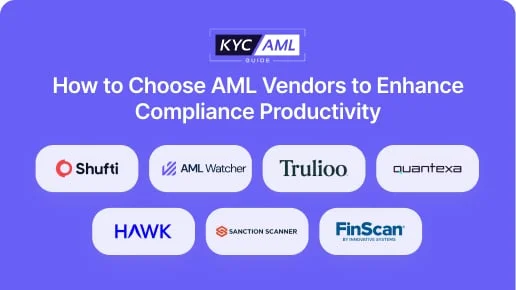The market for cryptocurrencies is predicted to grow from $1.49 trillion in 2020 to $5 trillion by 2030. This blog discusses the most recent cryptocurrency regulations in 2024 from the US to the United Arab Emirates.
The Comparative Analysis of Crypto Regulations Across Countries
| Country | Trading Legal | Classification of Crypto | License Required | Central Bank Currency Project | Legal Tender | AML/CFT Regulations |
| USA | Yes | Securities | Yes | Yes | No | Yes |
| European Union | Yes | Non-currency | Yes | Yes | No | Yes |
| UK | Yes | Property | Yes | Yes | No | Yes |
| Germany | Yes | Units of accounts | Yes | Yes | No | Yes |
| Australia | Yes | Property | Yes | Yes | No | Yes |
| Canada | Yes | Securities | Yes | Yes | No | Yes |
| China | No | – | – | – | – | – |
| Brazil | Yes | Not Classified | No | Yes | No | No |
| India | Yes | Not Classified | No | Yes | No | No |
| Singapore | Yes | Goods | Yes | Yes | No | Yes |
| Hong Kong | Yes | Property | Yes | Yes | No | Yes |
| Japan | Yes | Legal Property | Yes | Yes | No | Yes |
| UAE | Yes | Intangible asset | Yes | Yes | No | Yes |
| South Korea | Yes | Legal Property | Yes | Yes | No | Yes |
1. USA
In the US, cryptocurrency isn’t officially recognized as legal tender but crypto exchanges have to follow the regulations of the Bank Secrecy Act. The FTX mess in 2022 pushed the government to tighten rules around crypto. They gave more authority to groups like the Securities and Exchange Commission (SEC) and the Commodity and Futures Trading Commission (CFTC) to keep an eye on things. Lawsuits against big players like Coinbase and Binance show that the SEC is serious about protecting investors and keeping the crypto market fair.
A new FinCEN rule mandates suspicious activity reporting for transactions over $10,000. The IRS classifies Bitcoin as a taxable asset. Two significant Laws in 2023, the Financial Innovation and Technology (FIT) for the 21st Century Act and the Blockchain Regulatory Certainty Act meant to characterize when cryptographic qualifies as a security or commodity and increment industry oversight, yet no headway has been made since their presentation.
The SEC granted certain bitcoins the same status as exchange-traded products (ETPs) in January 2024 is evidence of the robust and ever-evolving nature of US crypto regulations.
2. European Union
Cryptocurrency is legal throughout Europe, and the laws governing cryptocurrency exchanges vary from nation to nation. State taxes also vary from 0 to 48 percent. Standard KYC/CFT obligations and reporting requirements have been tightened by the EU’s Fifth and Sixth Anti-Money Laundering Directives (5AMLD and 6AMLD).
In May 2023, the European Association introduced the Markets for Cryptocurrency Assets (MiCA) regulation. Implementation began in June 2023 and will be completed by the end of 2024.
All organizations issuing or distributing cryptocurrency will need a license. Beginning in January 2026, all service providers, regardless of the amount transferred, must include sender and recipient names. Furthermore, before any transactions can take place, any self-hosted wallets worth more than EUR 1,000 must undergo wallet verification.
Also Read: KYC in Crypto: Why is it Important for Crypto Exchange?
3. UK
In the United Kingdom, Bitcoin is not recognized as legal tender, although it is legal to own and trade. The Financial Conduct Authority (FCA) controls the registration of cryptocurrency exchanges. The Bank of England and the FCA recommended laws connecting the value of stablecoins to other assets.
The Financial Services Market Act expanded regulations to cover all assets and services. Cryptocurrency issuers and custodians must adhere to the Office of Financial Sanctions Implementation (OFSI) reporting requirements. The UK ordered that cryptocurrency enterprises follow the Travel Rule for regulatory compliance beginning September 1, 2023.
Looking ahead, UK Economy Minister, Bim Afolami, stated that by mid-2024, the country would implement new regulations regarding crypto staking, exchanges, custody, and stablecoins.
4. Germany
The German regulatory environment is praised for providing more clarity than most regulatory environments around the world. They are not considered legal tenders. In May 2022, the German parliament made Bitcoin and Ether free to sell to private individuals after one year.
The regulator, BaFin, has published mid-term goals until 2025, including strengthening DeFi regulations and protecting consumers from unknown risks. European countries also have favorable tax laws regarding crypto.
5. Australia
In Australia, cryptocurrencies are seen as legal property but not legal tender and are taxed accordingly. Crypto exchanges can operate if they register with the Australian Transaction Reports and Analysis Center (AUSTRAC) and follow anti-money laundering rules. Australia’s digital asset economy has grown to A$2.1 billion and is expected to reach A$68.4 billion by 2030.
In 2019, the Australian Securities and Investments Commission (ASIC) set rules for initial coin offerings (ICO) and banned private coin offerings on exchanges. Plans for a crypto licensing system and a potential central bank digital currency (CBDC) were revealed in 2021. The Australian Treasury announced a 2024 rollout plan in October 2023, with a 12-month transition if approved. AUSTRAC is prioritizing stricter oversight of digital currency exchanges in its 2024 plan.
6. Canada
In Canada, you can use cryptocurrencies for purchases, though they’re not considered legal tender. The country is proactive in regulating crypto, with exchanges needing to register with FinTRAC since June 2020.
Crypto investment firms are categorized as MSBs and must register too. Taxes treat crypto like any other commodity. Canada is set to approve the first bitcoin ETF, tradable on the Toronto Stock Exchange. Trading platforms and brokers must register with provincial regulators for crypto trading.
7. China
The People’s Bank of China (PBOC) has forbidden cryptocurrency enterprises from functioning in China because they provide public financing without approval. Furthermore, in May 2021, China imposed a complete ban on Bitcoin mining, forcing many players to either transfer to jurisdictions with more favorable regulatory frameworks or discontinue operations, followed by a total ban in September 2021.
8. Brazil
In November 2022, cryptocurrency became a legal means of payment. Bitcoin, on the other hand, is not accepted as currency. In June 2023, Brazil enacted cryptocurrency regulation as 14,478, or “Legislative Framework for Virtual Assets.” The primary objective of the Cryptocurrency Act is to prevent cryptocurrency fraud. It regulates all businesses that provide services related to virtual assets.
The Central Bank of Brazil intends to finalize crypto regulations in three stages by 2024: a public consultation on VASPs, a regulatory framework for stablecoins, and a final regulation for VASPs. The effort aims to ensure regulatory clarity and financial system security in Brazil’s digital asset market.
9. India
Cryptocurrencies were banned in India, but the Supreme Court struck them down in 2020. It is not considered as legal tender. There is a 30% tax levied on all crypto investments and a 1% tax deduction at source (TDS) on crypto trades. Later, Parliament approved a bill on cryptocurrencies and official regulation of digital currencies, but it was postponed. The country’s 2022 financial law defines virtual digital assets as real estate and establishes tax requirements for collecting taxes on income from them.
10. Singapore
In Singapore, cryptocurrency is considered property but not legal tender. The Payment Services Act (PSA) grants the Monetary Authority of Singapore (MAS) authorization and oversight over exchanges. Digital payment providers were cautioned by MAS in 2022 not to advertise their services. A law that requires a license to operate requires all virtual asset service providers, including cryptocurrencies, to abide by anti-money laundering (AML) and anti-terrorism regulations by April 2022.
October 2022 saw Singapore express concerns about customer fund security and digital payment token service transparency. To tackle this, MAS introduced new regulations in July 2023 to safeguard consumer funds in case of service provider defaults, akin to Australia’s measures. August 2023 witnessed MAS implementing measures to regulate stablecoin providers, mandating certain criteria for using the “MAS regulated stablecoin” label. While Singapore historically doesn’t tax income, it applies regular taxes to cryptocurrency mining profits, treating them as income.
11. Hong Kong
Hong Kong has introduced regulations that allow highly regulated crypto trading services, providing a safe haven for individual investors. They are not legal tender and do not qualify as money. Hong Kong aims to lead the digital asset currency space by introducing major regulatory changes for virtual asset trading platforms (VATPs). On May 31, 2023, the Securities and Futures Commission (SFC) issued new rules and licensing regulations. The Hong Kong Monetary Authority (HKMA) is working on a comprehensive system for stablecoin issuers, expected to be introduced in 2024.
On February 8, 2024, Hong Kong announced new criteria for over-the-counter (OTC) cryptocurrency exchanges to increase client protection. Specialist organizations would need licenses, to address existing administrative gaps highlighted by extortion incidents in 2023.
12. Japan
After the catastrophic $530 million Coincheck robbery in 2018, which prompted calls for stronger cryptocurrency restrictions, Japan reevaluated its approach to Bitcoin regulations. Japan views cryptocurrency as legal property under the Payment Services Act (PSA), demonstrating its progressive position. Crypto is not recognized as legal tender in that country. Cryptocurrency exchanges in Japan should register with the Financial Services Agency (FSA) and stick to AML/CFT regulations.
All bitcoin exchanges in Japan are members of the 2020-founded Japan Virtual Foreign Exchange Association (JVCEA). To stop money laundering, Japan has strengthened laws restricting the movement of user information between bitcoin exchanges.
13. UAE
The UAE is estimated to have the third-largest overall crypto market in the Middle East. The transaction values are estimated at approximately $26 billion. The UAE has not officially classified cryptocurrencies as legal tender.
The United Arab Emirates (UAE) is leading the way in crypto regulation thanks to the establishment of the Virtual Asset Regulatory Authority (VARA) in 2022 by the UAE Central Bank. VARA lays down clear guidelines for companies that use virtual assets, requiring registration with the central bank and compliance with AML/CTF regulations and customer due diligence.
In January 2024, the UAE executed its first cross-border CBDC transaction using the mBridge infrastructure, developed with central banks from Hong Kong, China, and Thailand. This initiative underscores the UAE’s commitment to digital transformation and leading fintech innovations.
14. South Korea
Cryptocurrency is not accepted as legal tender in South Korea. However virtual asset providers, including exchanges for cryptocurrencies, are required to register with the Korea Financial Intelligence Unit (KFIU), a branch of the Financial Services Commission (FSC). In 2021, South Korea also outlawed all private coins.
The regulation of cryptocurrencies and other virtual assets in South Korea has been gradually progressing since the Virtual Asset User Protection Law was passed in 2023. The law’s provisions for transparency and record-keeping have improved consumer protection. According to News 1, financial regulators are anticipated to release the requirements for virtual asset listings by late April or early May 2024.
Bottom Line
Governments and regulators’ continual attempts to balance encouraging innovation and protecting consumers are reflected in the global evolution of cryptocurrency laws. While several countries have adopted cryptographic forms of currency because of their decentralized and safe nature, their unpredictability and status as legal tender are cause for concern. The way stakeholders adapt to economic trends and the problems provided by a quickly evolving market will define the future of cryptocurrency regulation in 2024. Finally, clear and progressive regulation will be critical to ensuring the sustained expansion and development of the global Bitcoin ecosystem.





